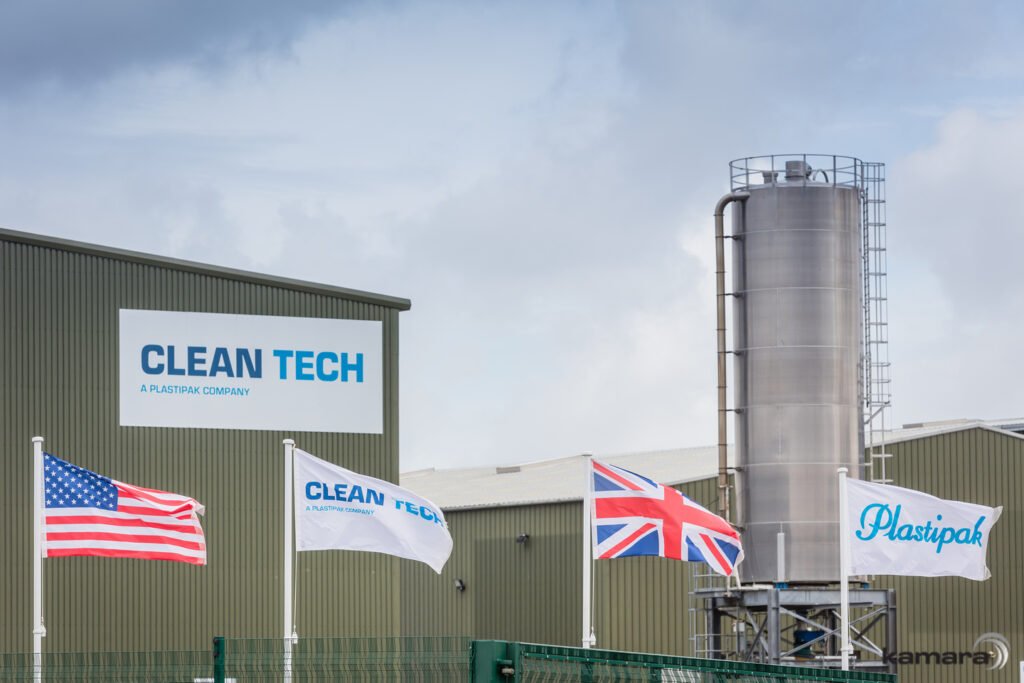Plastipak, a leading rigid plastic packaging producer and recycler, has teamed up with anaerobic digestion (AD) operator BioteCH4 to deliver a low carbon solution to power its Clean Tech PET recycling plant.
Based in Hemswell, Lincolnshire, BioteCH4 operates an anaerobic digestion plant, recycling over 90,000 tonnes of food waste per year. Anaerobic digestion is a complex biological process involving the breakdown of organic matter in the absence of air in large, sealed and insulated vessels with controlled heating and mixing.

Food waste enters a sealed building where it is processed into a liquid slurry, and pumped into the anaerobic digestion plant. It is here that bacteria feed on the food waste and produce biogas. This biogas is captured and used as fuel in CHP (combined heat and power) engines to produce electricity, or sent through a gas filter and sent directly to the gas grid.
The digestate or biofertiliser produced undergoes pasteurisation to destroy pathogens and is used as a high nutrient biofertiliser on farmland, replacing fossil-fuel derived fertilisers. This ensures a complete loop of carbon and energy capture.
Clean Tech, wholly owned by Plastipak, is the UK’s leading PET plastic reprocessor, recycling more than 80,000 tonnes of post-consumer PET bottles and packaging per year, collected through the kerbside recycling system.
The food-grade recycled resin produced at Clean Tech is used to manufacture new PET preforms, bottles and containers for well-known FMCG brands at parent company Plastipak’s UK plant in north Wales. This process is known as bottle-to-bottle recycling, and keeps the PET plastic in a closed loop, so it can be recycled time and time again.
Clean Tech and BioteCH4 are neighbours, with just a road separating the two plants. Following the creation of this new partnership, the electricity generated through the CHP process at BioteCH4 is connected directly to Clean Tech to power the recycling process.
“The use of clean, green energy generated through the recycling of food waste fits perfectly with Clean Tech and Plastipak’s ethos of plastic closed-loop recycling. In their own rights, Clean Tech and
BioteCH4 are perfect examples of the circular economy in action, and this is a pragmatic yet unique partnership that combines the core activities of both companies to deliver a leading, low carbon end product of recycled PET resin” said Chris Brown, Managing Director of Clean Tech.

Recycled PET resin has a lower carbon footprint than virgin (new) resin and is used as a direct replacement in proportions from 25% to 100% in new bottles. Leading FMCG brands have long-term commitments to the use of recycled PET, driven by a combination of CSR policies, legislation and voluntary commitments such as the UK Plastics Pact.
Sam Tingle, Marketing & Brand Manager of BioteCH4 said, “As one of the leading anaerobic digestion operators in the UK, we have the knowledge and experience to deal with considerable volumes of food waste generated across a variety of business sectors and local authorities. We are delighted to partner with Clean Tech and look forward to a long and fruitful relationship”.
